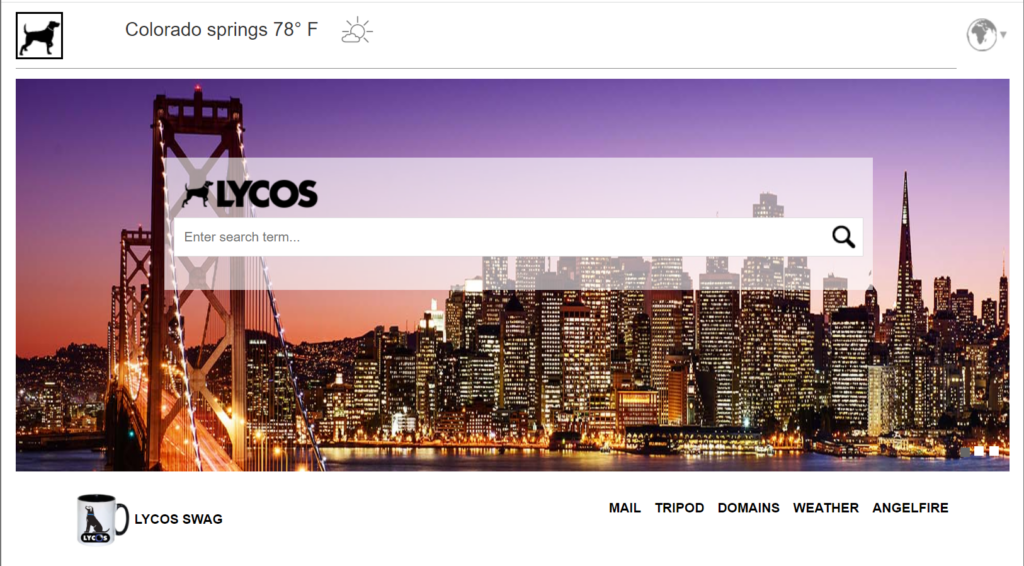Rise and Evolution of Lycos: A Pioneer in Early Search Engine Technology.
Lycos, a 90s pioneer in search engine technology, distinguished itself with unique features, but couldn’t sustain dominance amid market shifts and competition, notably from Google.
September 30, 2023
In the mid-90s, when the World Wide Web was still very much in its infancy, an array of search engines competed fiercely for dominance. Amongst these pioneers was Lycos, a search engine launched in 1994. An offspring of one of the earliest research projects in this domain at Carnegie Mellon University, Lycos soon positioned itself at the forefront of web-browsing technology.

Lycos was named after a species of spiders known for their hunting prowess, Lycos stood out for its robust search algorithms and extensive web directory. It quickly gained a reputation as an efficient and reliable tool for online users to navigate the burgeoning landscape of the internet. While its competitors were focusing more on evolving their search capabilities, Lycos had set its eyes on becoming a comprehensive web portal showcasing an extensive index of web pages, email service, and topical categories to facilitate the search.
Lycos search engine had several key differentiating features that set it apart from its competitors during its heyday.
1. Extensive Index: Lycos boasted a vast index of web pages, allowing users to access a wide range of information quickly and efficiently. Its robust search algorithms ensured accurate and relevant search results were provided to users.
2. User-friendly Interface: Lycos presented its search results in a straightforward and intuitive interface, making it easy for users to navigate and find the information they were looking for. The user-centric design prioritized simplicity and ease of use.
3. Lycos Top 5%: In an effort to guide users towards high-quality content, Lycos introduced a unique ranking system called “Lycos Top 5%.” This feature identified and showcased the best and most popular websites across various categories, helping users discover trusted sources of information.
4. Web Directory: Lycos incorporated a comprehensive web directory that categorized websites into different topics and subjects. This directory made it easier for users to explore specific areas of interest, providing a more structured and organized approach to web browsing.
5. Additional Services: Lycos went beyond conventional search functionality by offering additional services such as email, news, weather updates, and online community forums
The Lycos search engine has undergone a series of transformations since its peak in the late 90s. After initially going public in 1996, it was later purchased by Terra Networks, a Spanish telecommunications company, in 2000 for almost $12.5 billion. However, the following years witnessed profound changes in the internet landscape, which saw the rise of more dominant players like Google, ultimately outcompeting Lycos.
Over the years, Lycos has been bought and sold several times. In 2004, Terra sold Lycos to Daum Communications, a South Korean company, for $95 million. After a number of years, the engine was once again purchased in 2010 by an Atlanta-based company, Ybrant Digital. During these transitions, Lycos continued to operate, but with a significantly diminished user base.
Facing stiff competition and market changes, Lycos attempted to diversify its services. It launched Lycos Life, a suite of wearable internet-connected devices, and also ventured into the domain of digital video creation and distribution. Despite these efforts, the search function of Lycos was unable to regain its initial prominence.
As of today, Lycos still operates as a search engine and web portal, offering a range of services including email, online games, and digital videos. However, compared to its early days as a leading search engine, it exists now as a relatively minor player in the internet space. Its legacy is significant though, and the Lycos name continues to symbolize the early days of the internet and search engine technology.
#Lycos #SearchEngine #WebTechnology #90sInternet #CarnegieMellonUniversity #WebNavigation #InternetHistory #LycosTop5percent #WebDirectory #UserFriendlyInterface #GoogleCompetitor #TerraNetworks #DaumCommunications #YbrantDigital #InternetLegacy #SearchEngineIndustry #SearchEngineHistory
